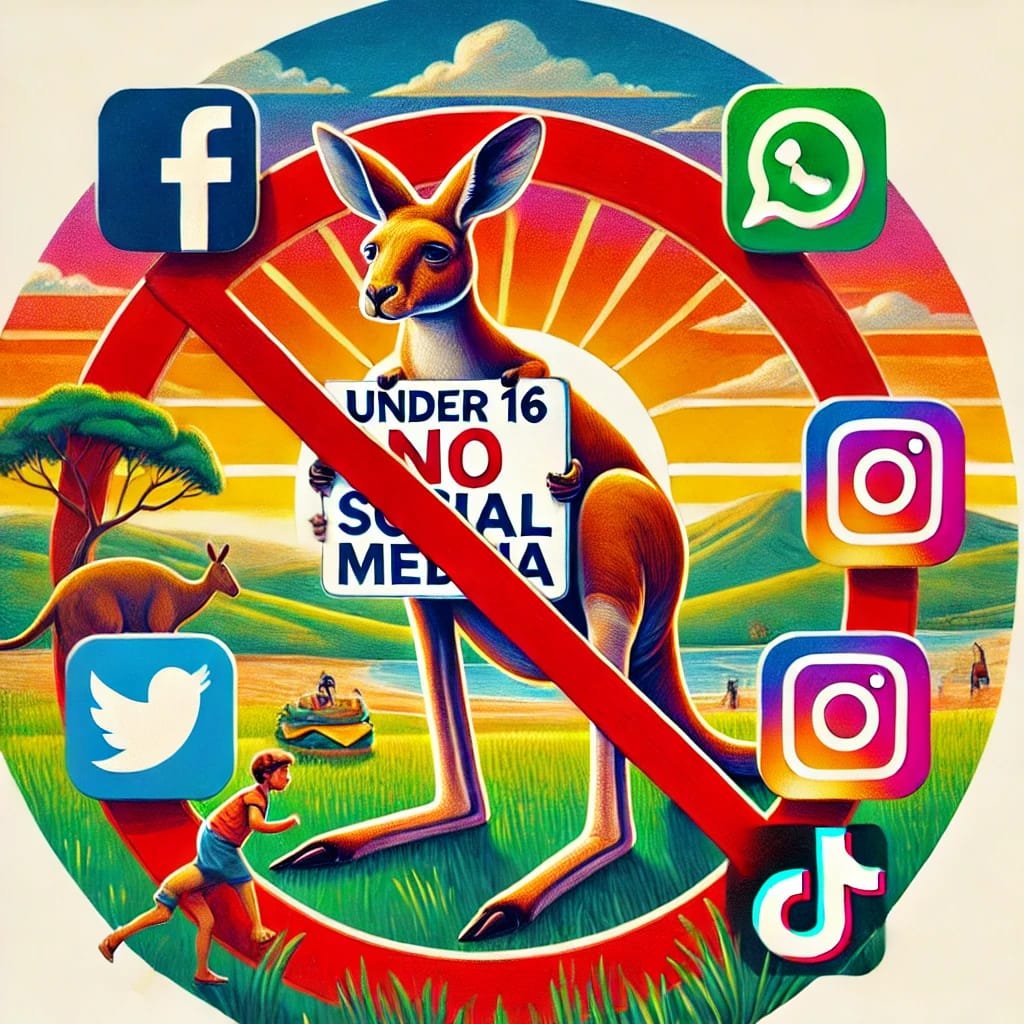Australia Enacts Landmark Law Banning Social Media for Children Under 16
In a groundbreaking move, Australia has passed the Social Media Minimum Age law, which prohibits children under 16 from accessing social media platforms like Instagram, Facebook, and TikTok. The law, passed on November 28, 2024, imposes hefty fines of up to A$49.5 million (USD $32 million) on tech giants failing to comply, setting a global precedent in Big Tech regulation aimed at addressing youth mental health crises.
This ban, supported by 77% of Australians according to recent polls, represents one of the world’s strictest regulations targeting tech companies. A trial to determine enforcement mechanisms will commence in January 2025, with the law coming into full effect by the following year.
Addressing a Growing Mental Health Crisis
The Australian government introduced this legislation following growing evidence of the detrimental effects of social media on young people’s mental health. A parliamentary inquiry throughout 2024 heard harrowing testimonies from parents of children who had self-harmed due to cyberbullying. This was bolstered by statements from U.S. Surgeon General Vivek Murthy, who in 2023 declared social media a significant contributor to the youth mental health crisis.
Prime Minister Anthony Albanese, who faces re-election in 2025, championed the law as a response to public concern and a way to “Let Them Be Kids,” a campaign supported by media giant Rupert Murdoch’s News Corp.
Supporters and Critics Clash Over the Ban
While parent groups and anti-bullying advocates praised the move, others have raised concerns. Youth advocacy groups and academics warned the ban might isolate vulnerable young people, including LGBTQIA+ and migrant teenagers, who rely on online networks for support. Privacy advocates also argued that enforcing age restrictions could lead to heightened data collection and potential misuse, raising fears of state surveillance.
In response to such concerns, lawmakers amended the bill to prohibit platforms from mandating the upload of identification documents, offering alternative verification methods.
Critics like Senator Sarah Hanson-Young from the Greens dismissed the law as an outdated approach, stating, “This is boomers trying to tell young people how the internet should work to make themselves feel better.”
Broader Implications and Challenges
Australia’s move has implications beyond its borders. The United States, where social media giants like Meta and TikTok are headquartered, expressed concerns about the ban’s impact on internet freedom. Elon Musk, owner of X (formerly Twitter), described it as a “backdoor way to control access to the internet by all Australians.”
Tech companies have also voiced reservations, arguing that the legislation was passed prematurely. Sunita Bose, managing director of the Digital Industry Group, emphasized the need for clearer guidelines on implementing age verification.
Platforms like YouTube, owned by Alphabet, are exempt from the ban due to their educational applications in schools. However, others must navigate the complexities of compliance to avoid severe penalties.
A New Global Benchmark
Australia’s ban may inspire similar legislation worldwide. Countries such as France and some U.S. states already require parental consent for minors to access social media, but Australia’s outright ban sets a new benchmark.
While the law’s long-term impact on mental health remains to be seen, anti-bullying advocate Ali Halkic believes it is a step in the right direction. “For the next generation coming up, if they don’t know what social media is, why is it important?” he remarked.
Despite challenges, this bold step reinforces Australia’s stance as a leader in Big Tech regulation, balancing innovation with societal well-being.



